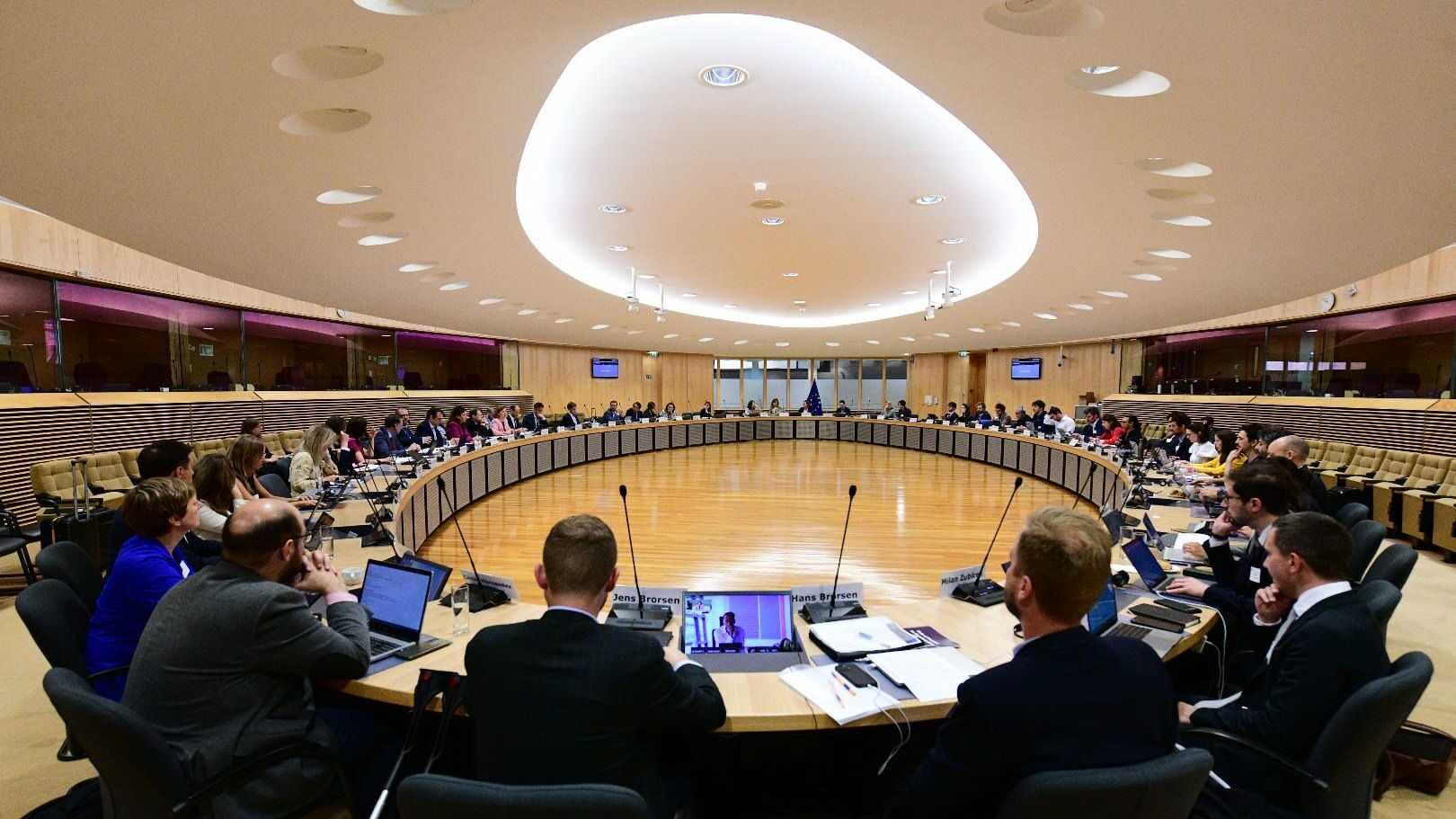
The European Commission asked big tech companies to ramp up fact-checking across the EU—especially in Central Europe—and to introduce identifying systems that would label AI-generated text and images in a bid to fight disinformation, Commission Vice President Věra Jourová revealed at a press conference on Monday, June 5th.
Earlier that day, the vice president for values and transparency, along with Internal Market Commissioner Thierry Breton, met with the representatives of 44 companies and organizations—including Microsoft, Google, Meta, TikTok, and Twitch—that have signed up for the EU’s Code of Practice on Disinformation, a set of voluntary commitments to cooperate with Brussels in its effort to tackle harmful content on social media. Only Twitter was missing, as the company withdrew from the Code late last month.
Today, I met w/ signatories of the new anti-disinformation Code.
— Věra Jourová (@VeraJourova) June 5, 2023
I welcome their work to implement the Code; still here is their main homework:
🔹🇷🇺 disinformation
🔹Improved access to data for researchers
🔹Addressing risks of AI
🔹Protecting information space during elections🧵 pic.twitter.com/yj2JIjtRTK
“Disinformation is not new, but [it] got new strengths in the digital world,” Jourová said, before highlighting the dangers of Russian subversion in Europe’s online spaces, which she said has been severely increased since the start of the war and is aimed at weakening Europeans’ support for Ukraine.
Therefore, Jourová asked the companies to significantly ramp up their ‘fact-checking’ practices and the policing of misleading social media content, “in particular in smaller member states and languages,” the commissioner said. She stressed:
We need [social media companies] to have sufficient capacities in all member states and all languages, especially the Central and Eastern European countries, [which] are under permanent attack from especially Russian disinformation sources, and we need the fact-checking to be done properly.
Furthermore, Jourová called for the companies to share more of the data they collect through their content moderation with the Commission’s researchers to be able to paint a more accurate picture of the nature of Russian disinformation, which could do the most damage in issues related to security and election integrity. Again, particularly in Central Europe. As she highlighted,
This is about … understanding the reasons why, in some member states, there is the feeding ground—or the soil prepared—for [the] absorption of [a] big portion of disinformation.
In the age of artificial intelligence, regular fact-checking is no longer enough, the commissioner outlined later, calling for the Code signatories to implement new measures to make sure AI technology is not used for generating disinformation.
The EU is currently preparing the AI Act, its one-of-a-kind, flagship legislative package to regulate high-risk applications of the relatively novel technology. However, some aspects of the increasingly widespread adoption of artificial intelligence prompted the Commission to cut to the chase before the legislative process is finalized.
One of the most concerning challenges is presented by language models or text-generative AI chatbots, such as OpenAI’s ChatGPT, or Google’s Bard (which could spew out highly convincing messages when integrated into social media bots), as well as ‘deepfakes’—hyper-realistic AI-generated pictures, made using Stable Diffusion, Midjourney, or other similar programs—that the Commission fears will be increasingly used to make online disinformation more credible.
“So, today I asked the signatories to create a dedicated separate track within the Code to discuss [the challenges of AI]. The Code today does not cover these sorts of tools,” Jourová said, adding that the companies should “put in place technology to recognize [AI-generated] content and clearly label [it] to users.”
A good example of these tools’ capabilities was an AI-generated picture of Pope Francis in a puffy jacket that went viral on the internet for making users think it was real for a brief time.
Regret to report that image of Pope Francis in a huge coat is a hyper-realistic AI fake.
— Alistair Coleman (@alistaircoleman) March 26, 2023
Furthermore, His Holiness has never been a member of East 17, and neither has he suffered a bizarre car accident after eating three jacket potatoes with tuna, mayo and cheese.
That is all. pic.twitter.com/jAUWnD51au
While Francis modeling for Balenciaga was clearly just a joke, the same thing could be easily replicated with any well-known public figure, and for much more malign reasons too. Add to that the rapidly advancing AI video-generating technologies as well as the already credible AI voice synthesizers, and you could make some scandalous footage of any Eurocrat or government official that would certainly leave a stain on their reputation.
“Today it is mostly a game, but tomorrow you could see fake porn with a candidate,” an unnamed EU official told Politico ahead of the meeting.
